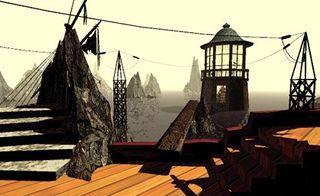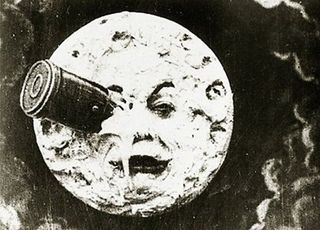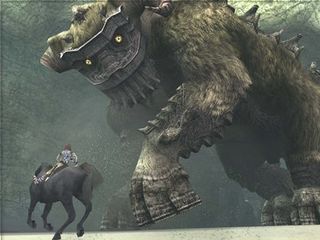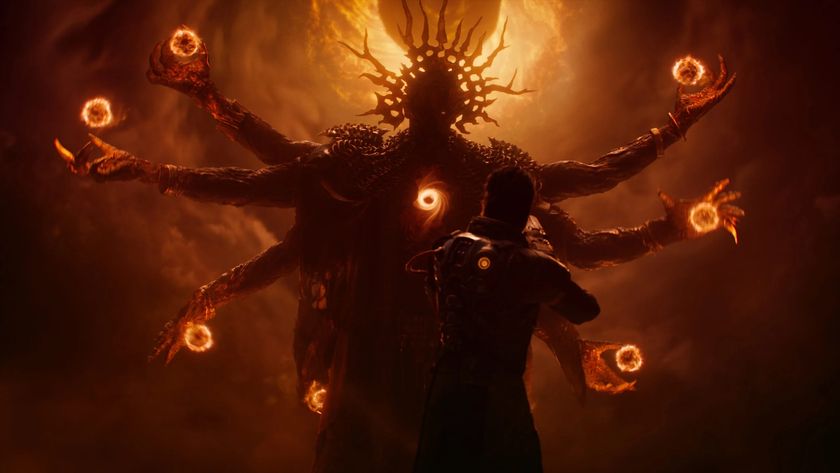Roger Ebert: I was wrong, I don't have enough experience of games
Film critic goes back on games as Art standpoint, explains argument
While I thankfully never felt the flame-licking rage that many internet folk did, I was continually frustrated by Ebert's position. To me, it always seemed like the viewpoint of an obviously intelligent, media-savvy man making woefully misguided statements based upon a lack of real comprehension of the medium's current state of evolution. And now, in anew blog poston the matter (which you should read). Ebert has admitted that that's exactly what it was.
So while I've never really stepped into this particular debate before, I thought this was the right time to throw a few of my own musings into the ring. So I'm about to.

First up, much respect to Ebert for admitting his error and taking the time to further explain his position. While the admissiontook longer than I perhapswould have liked, a public admission oferror is a hard thing to muster up, and all things considered, it was an admirable and intelligent thing to do.
One important thing to note though is that Ebert hasn't said that games can be art. He still claims not to have seen any real evidence of that, but he does state that there's nothing stopping games being capable of art as they evolve. In his own summation,
'I should not have written that entry without being more familiar with the actual experience of video games.
This is inarguable'

Above: Things have moved on
Sign up to the 12DOVE Newsletter
Weekly digests, tales from the communities you love, and more
Which has pretty much been my problem with his standpoint all along. In fact it's a problem that continues to make erroroneous even his most recent perceptions. By Ebert's own position, he hasn't played a game since Myst. And he's fully aware that Myst is a game from way back in the infancy of the medium. So Ebert has been making statements about the potential of video games without any awareness of how far they have already come.
It's like if I wrote off the artistic merits of the cinematic medium as a mere entertaining diversion,having only seen a few one-shot shorts from the 1890s, and Georges Melie'sLe Voyage dans la lune. It's an extreme simile, I'm aware, but games as a medium have evolved incredibly quickly since the early '90s.

Above: Things have moved on
Through years of experimentation and risk, games have finally found their feet as an expressive and narrative language, just as film did as its technical and creative practitioners evolved and innovated. I won't get too deeply into that here (if you're interested in that stuff, I discussed it a little more inthis featureon Alan Wake's story-telling techniques. Though there's a hell of a lot more to say than that article touches upon), but the point is that certain game developers have already found ways of using the interactive nature of games as a new way of augmenting their narrative, intellectual, emotionalcontent in wildly varying directions and levels of depth.
The future evolution of games that Ebert mentions as possible is already here, but through his lack of direct interaction with games, he has missed that, unfortunately.And as he admits, thisisthe key flawin his argument. After all, as I've always said, no critic, whether a supporter of games or not, can truly appreciate the techniques and mechanics of an interactive medium without actually interacting with it. That would be like reading a film scriptand thenpassing judgement on the movie.

But while he currently seems to have no aspirations to change that gap of understanding, he has been paying attention to the games recommended to him. And from what he's written, he seems to think that Shadow of the Colossusis 'the one I should begin with'.
Not a bad start, Roger, not a bad start at all. C'mon, give it a go and join the party. We'll be happy to have you. There's a whole world of great media that you're missing out on, and it's always better to be wrong than miss out.
But what do you think of Ebert's semi-retraction? Would you like to see him build a real hands-on appreciation of games? And how important is Artin games to you? A vital piece of the experience and an important part of their maturation as a medium? Or are they just about shooting shit up for you? Le me know in the comments, or set your opinions' targeting systems on a course for our community portals onFacebookandTwitter.
Most Popular







